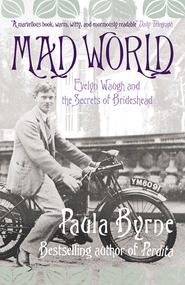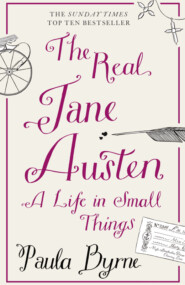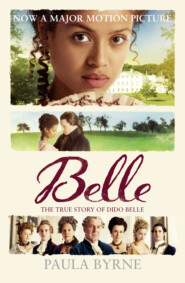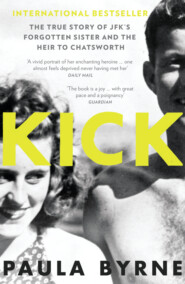По всем вопросам обращайтесь на: info@litportal.ru
(©) 2003-2024.
✖
Perdita: The Life of Mary Robinson
Настройки чтения
Размер шрифта
Высота строк
Поля
At last the huge curtain opened and Mary walked onto the stage clutching the arm of the nurse, almost fainting with anxiety.
(#ulink_cc19b0f8-bb49-5edc-87e5-313b045c155d) Before she had even spoken a line, she was greeted with rapturous applause. The audience, who could be vicious and recalcitrant if they felt cheated or disappointed, could also be encouraging and kind. It helped that she was beautifully dressed: ‘My dress was a pale pink satin, trimmed with crape, richly spangled with silver; my head was ornamented with white feathers.’ In the final scene, when Juliet is in her tomb, she wore a white satin dress that was ‘completely plain, excepting that I wore a veil of the most transparent gauze, which fell quite to my feet from the back of my head, and a string of beads round my waist, to which was suspended a cross appropriately fashioned’.
(#litres_trial_promo) White satin was the customary dress for a tragic or mad scene.
Playbills often advertised ‘new dresses’ – clothing was as important as scenery in making the theatre a place of spectacle. Fine robes and court dresses belonging to the aristocracy were sold to the theatres or given to favourite actresses, some of whom wore them irrespective of the role they were playing. There was much debate about consistency and historical accuracy of costumes in plays that mixed together ‘Old English’ style and contemporary dress. Newspapers often complained that the performers dressed according to their own whim and without the least regard for the consistency of the whole – a character might wear Turkish slippers together with a Grecian turban. Leading players could choose their own costumes, either from the stage wardrobe or made up by their own dressmakers. In the case of comedy, which was usually produced in contemporary dress, the female costumes were particularly elaborate, with hoops and high headdresses of plumed feathers. While performing, actresses prided themselves on dressing fashionably, regardless of the specific part they played. A chambermaid could look like a lady. The actress Sophia Baddeley, when encouraged to cut down her wardrobe expenses, reputedly answered, ‘One may as well be dead as not in the fashion.’
(#litres_trial_promo)
‘The thundering applause that greeted me nearly overpowered all my faculties,’ Mary remembered. ‘I stood mute and bending with alarm, which did not subside till I had feebly articulated the few sentences of the first short scene, during the whole of which I never once ventured to look at the audience.’ Her next scene was the masquerade. By now she had had time to collect herself. Being in an onstage crowd, she felt less self-conscious and dared to look out on the pit: ‘I beheld a gradual ascent of heads: all eyes were fixed upon me; and the sensation they conveyed was awfully impressive: but the keen, the penetrating eyes of Mr Garrick, darting their lustre from the centre of the Orchestra, were, beyond all others, the objects most conspicuous.’ The rest of the performance passed in a daze and ended with ‘clamorous approbation’ and compliments on all sides.
(#litres_trial_promo)
Sheridan was pleased with her and paid her well. After only two performances as Juliet, she was given a much-needed £20.
(#litres_trial_promo) Ten pounds per appearance was the top rate for an actress. But what she most desired was the approbation of Garrick. His praise sparked in her an intensity of feeling greater than she had ever known. She had gained the respect of ‘one of the most fascinating men and most distinguished geniuses of the age’; she felt ‘that emulation which the soul delights to encourage, where the attainment of fame will be pleasing to an esteemed object’.
(#litres_trial_promo)
Mary’s performance was well received. The prompter William Hopkins, who had seen all the greats and all the failures, was not an easy man to impress. ‘Juliet by Mrs Robinson – a genteel Figure – a very tolerable first Appearance, and may do in time,’ he noted laconically.
(#litres_trial_promo) The writer of ‘Theatrical Intelligence’ in the leading newspaper, the Morning Post, saw considerable potential:
A Lady, whose name is Robinson, made her first appearance last night at this theatre, in the character of Juliet; her person is genteel, her voice harmonious, and admitting of various modulations; and her features, when properly animated are striking, and expressive—
At present she discovers a theatrical genius in the rough; which, however, in elocution, as well as action, seems to require considerable polishing, before it can be brought to perfection. In the scene with the Nurse, where she mistakes Tibalt’s murder, for that of her lover, Romeo, she gave an earnest of stage-abilities, which, if properly attended to, may prove a credit to herself and the Theatre. – We shall be able to speak of her powers at large when we find her become a little more familiar with the stage.
(#litres_trial_promo)
A gentleman signing himself ‘Fly Flap’, writing in the same paper, found her ‘love-inspired Juliet’ most ‘truly and naturally depicted’. Two days later, following a repeat performance, the Morning Post confirmed its favourable first impression: Mrs Robinson ‘has a considerable share of untutored genius, and may, under proper instructions, become an acquisition to the stage’.
(#litres_trial_promo)
A rival paper, the General Advertiser (where Garrick had good contacts), went much further: ‘There has not been a lady on this, or any other stage, for some seasons, who promises to make so capital an actress … she has eloquence and beauty: the grace of her arms is singular … we may venture to pronounce her an acquisition and an ornament.’ The Gazetteer and New Daily Advertiser said, ‘the young lady who performed the part of Juliet last night was received with uncommon and universal applause’. The Morning Chronicle was also impressed, though it did sometimes think she ‘substituted rant for passion, and dealt in whispers where she evidently meant to be pathetic’. ‘Mrs Robinson,’ the reporter added, had a ‘genteel figure, with a handsome face, and a fine masking eye. She appeared to feel the character; and although there wanted a polish in her manner of speaking and more ease in her actions and attitudes, she gave the audience a better impression of her than we can remember them to have received from any new actress for some time past.’
(#litres_trial_promo)
Mary played Juliet several more times over the following months. Her second role, in which she appeared on Monday, 17 February 1777, was as the exotic Statira in a tragedy called Alexander the Great by the verbose Restoration dramatist Nathaniel Lee. In the Memoirs she recollects her costume in great detail: ‘My dress was white and blue, made after the Persian costume, and though it was then singular on the stage, I wore neither a hoop nor powder; my feet were bound by sandals richly ornamented; and the whole dress was picturesque and characteristic.’
(#litres_trial_promo) Her willingness to defy the fashion of hoops and powder for the sake of dramatic verisimilitude, even though this was only her second role on the stage, was impressive. She also knew that her abandonment of contemporary attire for traditional costume would draw extra publicity.
A week after playing Statira she was Amanda in Sheridan’s adaptation of Sir John Vanbrugh’s venerable Restoration comedy The Relapse. The play was announced as a new piece under the title A Trip to Scarborough. The audience were furious when they realized that they had been duped and began hissing (ladies usually hissed through their fans). The leading actress, Mary Ann Yates, swept off the stage, leaving Mary to ‘encounter the critical tempest’ alone. The terrified Mary was rooted to the spot, but Sheridan – from the side wing – bade her to stay on the stage.
Then there was an intervention from the most prominent member of the audience. The King’s younger brother, the Duke of Cumberland, was the black sheep of the royal family. He was a libertine, socialite, and avid theatregoer; his union to divorcée Anne Horton had been one of the causes of the Royal Marriage Act of 1772, which restricted the young royals’ freedom to marry. He called out to Mary from his side box: ‘It is not you, but the play, they hiss.’ She curtsied in response and ‘that curtsy seemed to electrify the whole house’. There was a thundering peal of applause and the play was allowed to continue. It ran for ten nights and remained a staple of the Drury Lane repertoire for many years to come. As one contemporary noted, the great attraction of A Trip to Scarborough was that ‘it gave an opportunity for producing, in one night, three most remarkable actresses, Mrs Abington, Miss Farren, and Mrs Robinson – the first at the very top of her profession for comic humour – the second of surpassing loveliness and elegance – and the third, one of the most beautiful women in London’.
(#litres_trial_promo)
Mary’s aplomb in response to the Duke of Cumberland had saved Sheridan’s new show. The following morning’s Gazetteer and New Daily Advertiser would have added to her delight: ‘Mrs Robinson’s acting had certainly a just claim to the encouragement of the audience … We will venture to affirm, that success cannot fail to attend her theatrical abilities.’
(#litres_trial_promo)
Mary was at last gaining the financial independence that she had always wanted. In April she was given her first benefit. The benefit was the key to an actor’s earnings. It was a special performance from which the financial proceeds, after deduction of expenses, were given to a member of the company, who was allowed to choose the play for the evening. Being nearly eight months pregnant by this time, Mary chose the role of the pregnant Fanny in The Clandestine Marriage, an exceptionally popular comedy of which Garrick was co-author. It was a brilliant choice, which at once fitted her figure, flattered Garrick and guaranteed a good box office return. The playbill announced that she was selling advance tickets herself, from 19 Southampton Street, Covent Garden. Receipts for the night amounted to a very satisfactory £189 (about £8,000 in today’s terms). But her increasing size as she entered the final stages of pregnancy forced her to turn down Sheridan’s offer of a role in his new play, The School for Scandal. It went to her school friend Priscilla Hopkins, who was also in the company. The play opened on 8 May and was an instant hit.
The Robinsons’ new home in Southampton Street – where Garrick had lived for many years – was a stone’s throw from Drury Lane. The area was full of actors and actresses. It was a hub of activity, with the Covent Garden Piazza, a cluster of market stalls in the centre, hotels, coffee houses, and shops, bathhouses, and taverns. The shops stayed open from seven in the morning till ten in the evening, lit by elegant double-branched street lamps. Unusually for eighteenth-century London, the streets were paved and clean. Nearby on the Strand the huge government office building Somerset House was in the early stages of construction. To the west, new streets were being laid out – Bedford and Portman Squares and Portland Place, opening onto the fields of Marylebone. Money and the confidence of money were in the air. In Hyde Park the rich and elegant paraded on horseback or drove about in the latest carriages.
Mrs Robinson began to enjoy the fruits of her talent and popularity. She played light romantic roles, ingénues and virtuous wives – all parts that made the most of her beauty and fine figure. Sheridan lavished attention upon her, she received a handsome salary, the theatre boxes were full of people of rank and fashion. In her Memoirs she records the complete turnabout of her life: ‘I looked forward with delight both to celebrity and to fortune.’
(#litres_trial_promo)
She gave birth to another daughter, who was baptized Sophia on 24 May 1777. At the age of 6 weeks, the baby started having convulsions, as Maria Elizabeth had once done in Wales. This time the child did not survive. She died in her mother’s arms. Sheridan called on Mary that very day. She would never forget his face as he entered the room and saw the dying baby on her lap. ‘Beautiful little creature,’ he said with ‘a degree of sympathetic sorrow’ that pierced Mary’s heart. His sympathy was a harsh reminder of Robinson’s lack of sensibility: ‘Had I ever heard such a sigh from a husband’s bosom?’
(#litres_trial_promo) Throughout this period, Tom continued with his infidelities, but all she cared about now was that he could not even be discreet. With a disarming candour, she admits that her husband did not love her: ‘I never was beloved by him … I do not condemn Mr Robinson; I but too well know that we cannot command our affections.’
Meanwhile, her friendship with Sheridan flourished. He gave Mary time and attention, despite all the demands of running Drury Lane – a company of 48 male actors, 37 actresses, 18 adult dancers, 2 child dancers, 30 dressers, and a whole panoply of box-keepers, porters, messengers, fruit-sellers, sweepers, carpenters, prompters, set-builders, and musicians. He was plagued with the business of the choice and casting of plays, but also more mundane matters such as the failure of performers to buy their own white silk stockings, dressers pinching leftover candles from the dressing rooms, late return of gloves and hats to wardrobe. Mr Sheridan and Mrs Robinson were kindred spirits, with their Irish blood, strong passions, high ambitions, and sharp sense of humour. They were both chameleons, players one moment and politicians the next. Perhaps they shared their thoughts on female education: Sheridan had written an essay sympathizing with the plight of impoverished gentlewomen and proposing the foundation of a new female university – just as Mary would do in her polemical Letter to the Women of England at the climax of her literary career twenty years later.
Sheridan’s unremitting attentions initiated a whispering campaign. Up until now the press had been supportive, but the rumour mill was beginning to turn – though Mary always insisted that the relationship was merely a good friendship. When she was too weak and distressed to finish the season after the death of Sophia, Sheridan suggested convalescence in Bath. From there, she returned to nearby Bristol for the summer. In the autumn, she went back to London, to new lodgings in Leicester Square. Her second book of poetry – the volume dedicated to Georgiana, containing ‘Captivity’ and ‘Celadon and Lydia’ – was published at this time. The reviewers were kind. According to the Monthly Review, ‘Two reasons preclude criticism here: the poems are the production of a lady, and that lady is unhappy.’
(#litres_trial_promo)
For her second season, 1777–8, Mary opened in Hamlet at the end of September, taking the role of Ophelia, the commoner who is wooed and then rejected by a prince. According to one newspaper, ‘Mrs Robinson looked Ophelia very beautifully, and for so young a theatrical adventurer, played it very pleasingly.’
(#litres_trial_promo) A week later she played Lady Anne in Richard III, the widow wooed over the body of her father-in-law by the man who has killed her husband. Despite these successes in tragedy, Sheridan was keen that she try her hand at comedy. Her roles over the following weeks included Araminta in Congreve’s popular Restoration comedy The Old Bachelor – the part is of a wealthy, witty, independent woman who runs rings round at least three male characters – and Emily, the ingénue in The Runaway, the first play of a woman dramatist who was beginning to make a name for herself, Hannah Cowley. She also took several roles of virtuous young women who refuse to give in to sexual temptation: the Lady in a version of Milton’s Comus, Fanny in a dramatization of Henry Fielding’s novel Joseph Andrews, and Octavia in All for Love, Dryden’s reworking of Shakespeare’s Antony and Cleopatra. Her abilities might have been better suited to the part of Cleopatra herself.
On Thursday, 30 April 1778, she played Lady Macbeth for her benefit (having originally been advertised as Cordelia). The afterpiece was a new musical farce called The Lucky Escape. Mary did not appear in it – but she was its author. It seems to have impressed the audience more than her performance as Shakespeare’s ‘fiend-like queen’. The Morning Post recorded that the operetta ‘was well got up, and all the players acquitted themselves with credit. There is a prettiness and sentiment in the language strongly characteristic of the author.’ The Morning Chronicle was more cynical: ‘The Lucky Escape is evidently one of those hasty escapes from the brain, which are from time to time served up at each theatre, during the course of the benefit season, with a view to engage the attention of the publick, on the score of novelty, but which, for want of solid merit, are rarely, if ever, heard of again.’
(#litres_trial_promo) But even this churlish reviewer praised the music.
A few days later, there appeared on the London bookstalls (‘printed for the author’) The Songs, Chorusses, etc. in The Lucky Escape, a Comic Opera as Performed at the Theatre-Royal, in Drury-Lane. Mary was proving her versatility, moving with fleetness of foot from comic heroine to tragedy queen to composer of a musical. Her salary had risen to £2. 10s. a week, with the takings from the benefit night on top. She rounded off the season with a reprise of her Juliet.
It would be foolish to seek for biographical revelation in a light musical confection such as The Lucky Escape, but one cannot help wondering whether there is any significance in the fact that the heroine is called Maria (the name under which Mary had signed the dedication to her recent volume of poems). The heroine’s father is called Steadfast – which is something that Nicholas Darby was not. Another character is Venture, ‘a Sharper’, who sings that the attractions of a ‘comely lass of gay fifteen’ (Mary’s age when she married Tom Robinson) quickly pall in comparison to the allure of money:
The comely lass of gay fifteen,
May make a silly lover languish,
But the pain that lurks unseen,
Often fills the heart with anguish.
Beauty once the heart possessing,
Charms the sense and drowns our reason;
Gold the spring of every blessing,
Finds a friend in every season.
(#litres_trial_promo)











